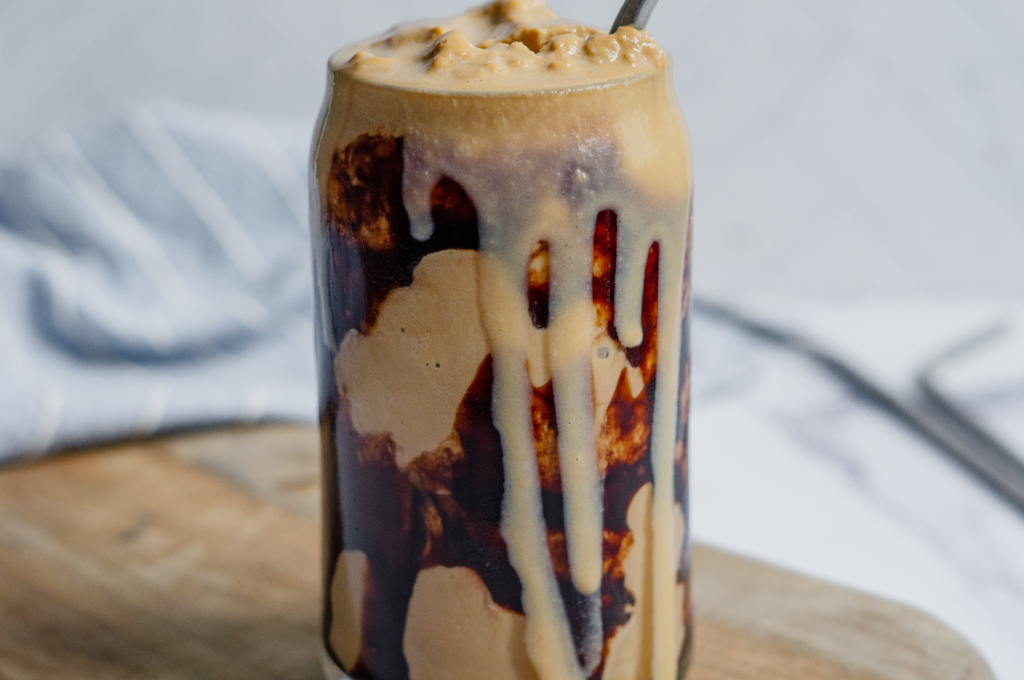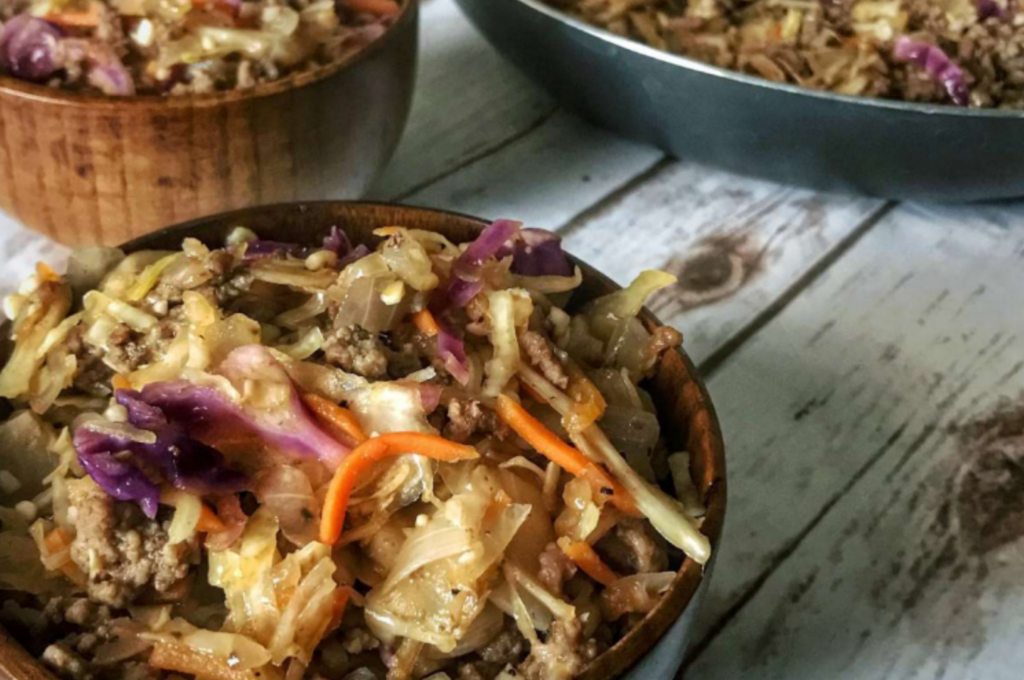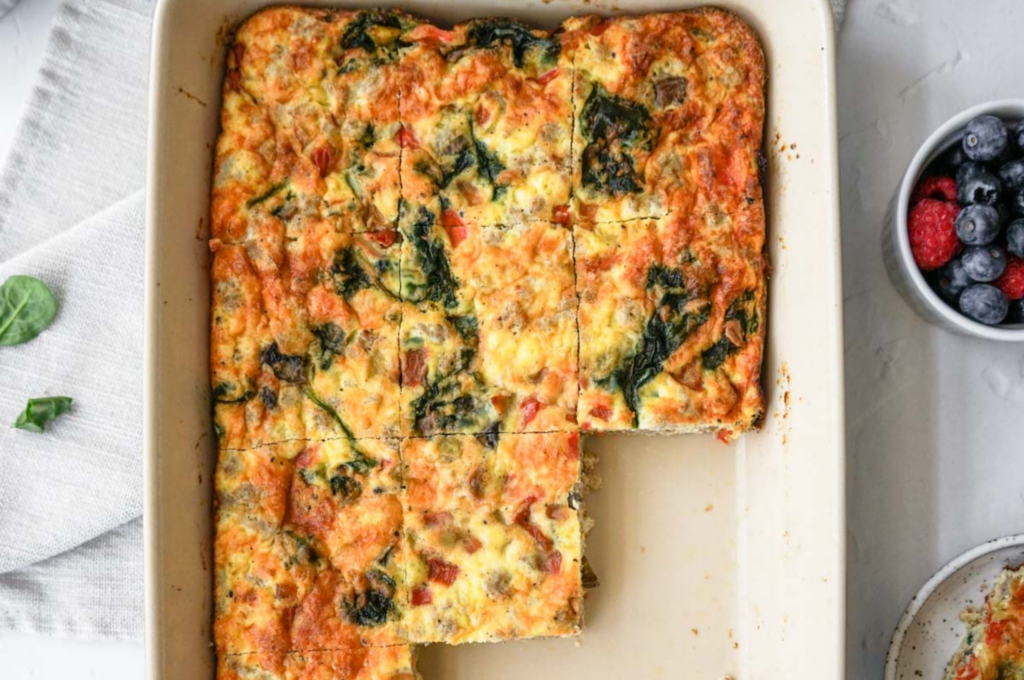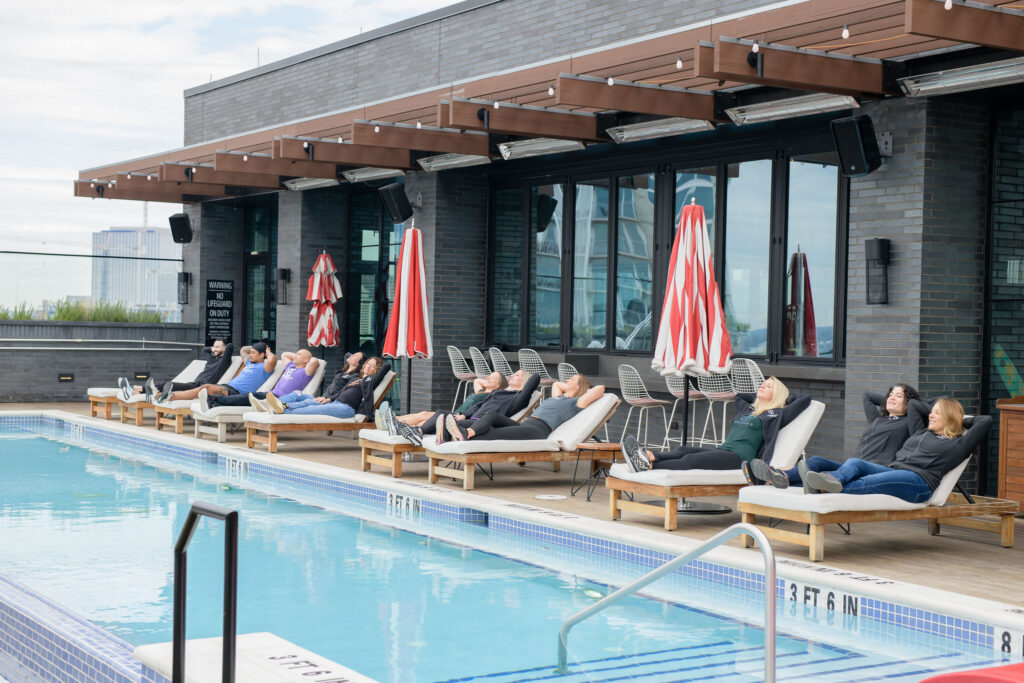So we’re officially 12 weeks out from the official/unofficial start of summer, Memorial Day. The day where we all finally decide that we’re ready to trade in our snow boots and heavy coats for tank tops and flip flops. It also means that people are starting to scope out diets, thinking about checking out that gym down the street, and maybe starting to turn some attention back to those weight loss resolutions.
Here at Stronger U, we’re dedicated to making sure that you have the greatest Memorial Day, and summer, possible. Summer is one of those times where it seems that diets go to die for a lot of us—and we want to make sure that’s not the case for the Stronger U family. Because as you know, we here at Stronger U believe this isn’t really just a diet. It’s an entire lifestyle change. It’s a newfound understanding, awareness, and confidence around food and what food can do for our lives.
It’s important to us that we make sure that as many people as possible not only understand that message but come to live it this summer. That’s why we want to make sure that each and every that your summer is spent in the best shape of your life, whatever that means for you.
Let’s make this the best summer of your life.
Now, in order for us to really make this the best summer of your life, one of the things that we really need to make happen is understand some of the basics that should govern most of our decision making. We need to have a handle on some of the major underpinnings that make up a successful and sustainable weight loss diet. Because if we don’t have that, it’s much either to listlessly float from diet to diet, with no real direction, and no real change. So why don’t we cover those?
Step 1: Calories will always matter
First and foremost, you have to know that calories will always matter. Always. More than that, the number of calories that we’re eating on a daily basis keeps climbing and climbing.
You’ll never get away from the importance of calories. Calorie intake will be directly tied to what you see on the scale. So let this be a reminder to us all, when we don’t like what’s going on with the scale, we need to check what’s happening with our calorie intake.
So, with that being said, what do we need to know for us to feel great about how we look this summer?
Well, we need to understand that a calorie deficit is going to be of paramount importance. If walking around with a renewed sense of confidence means walking around at a lower level of body fat, eating less food than you need on a daily basis is a necessary piece of that equation.
Fat loss won’t happen without a calorie deficit. If you want to be shredded this summer, you need a calorie deficit.
So how do you make a calorie deficit happen? Well, here’s where things might get a little tricky for some. Finding the exact place where fat loss happens can be a bit of a challenge for some of us. In a perfect world, we should all be able to figure out our TDEE and then set up a diet so that we’re purposefully undereating in a controlled and sustainable manner that allows us to see success.
But real life is hardly a controlled experiment. So to set your calories, we first suggest starting here to figure out what you might need to eat on a daily basis.
For a simple example to base your calorie needs:
- Weight loss: 10-12 x body weight lbs
- Weight maintenance: 13-15 x body weight lbs
- Weight/muscle gain: 16+ x body weight lbs
Once you do that, you can then start to set your macros.
Now, what we want to make known here is that macros are nothing more than an additional set of guardrails to help inform our decision making. Counting macros is still counting calories, it’s just doing it in a more systematic manner that helps teach you some of the things you need to understand about food. Namely how certain macros can play a role in whatever your specific goals might be.
For example: someone looking to build or retain a bit more muscle mass could do well to make sure that they get plenty of protein. Or someone looking to take their performance in the gym to the next level might really want to pay attention to their total calorie intake and be sure they’re getting in plenty of carbs.
So how do you find your macros? Well, you can start here.
- Protein: A general rule of thumb for anywhere between .7g – 1g/lb of bodyweight is fine. There is some variance, and protein should make up anywhere between 10-35% of your daily calories.
- Carbs: There can be quite a bit of variance with carbs, but we typically want these to be anywhere from 45-65% of your total calories. If you’re more active, you should probably err on the high side.
- Fat: Your fat macros can typically be anywhere between 20-35% of your total daily calories if you’re looking for a moderate approach and not a specific high fat diet.
Now, something that’s important for us to understand here is that macros and calories are nothing more than a starting place. They’re a place that we get to start and try something out. They’re not an end all be all and they’re not an immediately perfect answer. Some people might start losing weight when they first set up their numbers, and for others, it might take a few weeks of trying things out, tweaking, adjusting, and learning how to properly make this a part of your lifestyle while also adjusting your life to this newfound awareness.
Which brings us to step 2.
Step 2: We firmly believe you should be logging
One of the things that we talk about a lot and that we hear a lot of is about logging and the practice of logging our food intake. We get a lot of messages from folks who are nervous about the idea of using a food scale, consistently weighing their food, measuring their food down to the decimal place, and more.
And you know what? I think all of those concerns are totally fair and grounded. It’s normal to be concerned about getting what some might view as obsessive.
But I’d counter that in saying that you’re also taking on a new challenge, and challenges in themselves aren’t inherently obsessive. You’re looking to learn more about yourself and your own behavior than most ever will, especially when it comes to food. You’re learning how to take back control of your decision making by cultivating awareness and understanding. I don’t think it’s hyperbole to say that with knowledge comes power, just like I don’t think it’s hyperbole to say that with understanding what a real serving of peanut butter looks like comes dieting success.
If you watch the video above, it’s pretty easy to see how logging eliminates the possibility of you getting away with anything. Of you sneaking things in here and there. Of you adding bites, likes, and tastes in that might wind up totaling a few hundred calories. Consistently and honestly logging tells that story. It creates a backlog of your behavior that helps us fight through our very own narrative bias. It helps us stay on track and see more success. It helps us get a more clear and complete picture of what we’re doing on a daily basis, and whether or not our actions are actually in line with our values and our priorities.
Start logging and keep on logging for a little bit. The magic of logging doesn’t come from doing it for a couple of days in a row. The magic of logging shows up when you’ve logged for a few months in a row and really start to have a clear understanding of how certain food choices begin to fit into your day. And that’s a level of understanding that can’t help but accompany time spent logging your food.
Step 3: Have you heard of patience?
Something else that we have to accept when really taking this kind of journey on is that nothing will happen overnight. This is not a journey of instant gratification. This is a journey of toil and work, but that’s also what makes it one of the most rewarding things we’ll ever do.
We learn so much about ourselves when we work to diet in a controlled manner because we not only start to see the value of awareness and understanding, we start to see the value of consistency. Once you really begin seeing how your new choices stack up on the food scale and MyFitnessPal, you also start to see your old choices in a new light. It suddenly starts to make sense just how exactly we got here in the first place. How that was a process of what is, most likely, years upon years of similar behaviors.
As we start to change those behaviors, we start to see the way that consistency in these new behaviors can compound. We begin to recognize that the real magic isn’t in the perfect day. It’s in stringing together as many pretty good days as we possibly can. We come to understand that the off day isn’t a death sentence to our diet. It’s just a misstep, and after a misstep comes a course correction.
Patience will be one of the more valuable skills that any of us can have. It’s one of the skills that will carry us through the hard times, and it’s one of the things that will help us gain perspective when we need it most. Like when we’re trying to burn off a bad day.
Step 4: Don’t try to exercise your fat off.
We’ve talked about this a lot. Really. We went way in depth on this. I really can’t express to you enough how poor of a plan that I think it is for someone to set out to exercise their fat off. It’s one of those plans that is the very definition of being unsustainable.
Exercising does burn calories, but that doesn’t mean that it’s a wholly reliable and effective way to burn calories on a consistent basis over the course of time that it really requires for us to see major body fat changes. For that, you need a consistent calorie deficit. You need time. You need patience.
We have to understand that while, at the end of the day, weight loss comes down to calories in vs. calories out, people don’t. Our training sessions, our weekend CrossFit classes, our hikes friends, or playing with our kids aren’t things that we use to balance out some calorie-counting scoreboard. They’re things that add value to our lives. Things that help take care of us physically, emotionally, and mentally.
Let exercise be something that adds value to your life. That you use to be stronger, fitter, and healthier. Not something that you use to punish yourself. Instead of punishing yourself, objectively evaluate what went on, treat it like the experience that it was, and learn from it. Come to do that with every experience you have, and you’ll have a never-ending recipe for improvement.
Step 5: A coach helps, too.
So look, here’s the part where I say the thing that makes Mike want to fire me. You can do this on your own. Just about every single person reading this is going to have the tools available to them somewhere across the Internet to figure out their calories and macros, learn to log, and learn the skills that come with doing those things on a daily basis.
Each and every single one of us has that ability to step inside the ropes, handle ourselves and this journey, and become a new and improved version of ourselves. But sometimes enlisting a little help is a smart move. It’s not a sign of weakness or an inability to accomplish something. It’s enlisting the help of someone who has been there. Who has helped plenty of people just like you through this same journey. It’s signing up to have someone in your corner. Someone there specifically for you, your goals, and making sure that you have a plan that’s doable for you.
We’re notoriously terrible at evaluating our own decision making. We’re both our best friends and our own worst critics when it comes to objectively evaluate our faults, flaws, and areas where we could improve our decision making. This is especially true when it comes to food, and it’s even truer when we’re the only ones responsible for looking back on our food choices from the past week or more.
This thing is hard. Addressing and changing your food behaviors takes time. It takes effort. It takes compassion and understanding. It also takes someone who can help you see where you might be slipping or could do to make a change. But if you’re to take away anything from this blog, take away this: it’s also possible. Each and every single one of us can have the best body of our life this summer, and we can also feel confident in our ability to maintain that body. The tools are there. But when you want a little bit more help, we’re here too.









